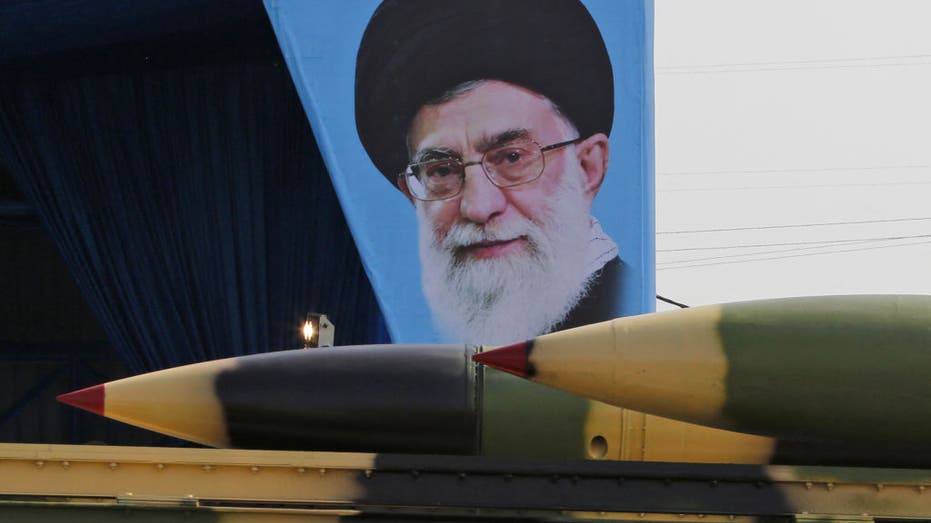US Imposes Sanctions on Money Laundering Network Supporting Iran Amid IAEA Nuclear Resolution
Trump administration sanctions 35 individuals for Iran money laundering amid escalating tensions over IAEA compliance concerns.

The U.S. Department of the Treasury’s Office of Foreign Assets Control (OFAC) imposed sanctions on 35 individuals accused of laundering money for Iran on Friday, a significant move as American officials pursue renewed diplomatic engagement aimed at curbing Iran’s nuclear ambitions. According to a State Department spokesperson, the network targeted by these measures has funneled billions of dollars through Iranian exchange houses and foreign front companies, allegedly helping fund Tehran’s campaigns of terror and reinforcing the economic power of regime elites.
This latest round of sanctions comes during a period of intensified strains between Iran and Western countries. Debate is mounting over a potential International Atomic Energy Agency (IAEA) resolution that could formally declare Iran out of compliance with its nuclear obligations—a step not seen in almost two decades. Iranian Foreign Minister Abbas Araghchi denounced the IAEA initiative as a "strategic mistake," accusing leading European powers of favoring what he called "malign action" over diplomacy. He vowed forceful retaliation against any perceived infringement on Iran’s rights, further stoking an already volatile atmosphere.
The draft resolution, expected to be introduced in the coming week, would represent an unprecedented step by Western nations, intensifying scrutiny on Iran’s nuclear activities. At the same time, talks between U.S. and Iranian negotiators remain delicate, with high stakes for both sides and growing uncertainty about any possible agreement’s impact—especially inside Iran itself.
For ordinary Iranians, years of economic isolation and domestic mismanagement have translated into a daily struggle for survival. "Right now, people in Iran do not have any hope for anything," explained a female journalist based in Tehran, who requested anonymity due to concerns for her safety. She described deteriorating conditions, including persistent utility shortages, rapid currency devaluation, and runaway inflation: "The economy is collapsing… Life is becoming unlivable."
Despite public desire for relief, there is deep suspicion about the real beneficiaries of any diplomatic breakthrough. Many Iranians harbor doubts that a new agreement would bring substantial change, worrying instead that it might consolidate the authorities’ grip on power. "If the regime reaches a deal, it could become more powerful and more confident in suppressing people. That’s what frightens us the most," said the same journalist.
Under Supreme Leader Ayatollah Ali Khamenei, the Islamic Republic faces mounting unrest fueled by economic hardship and political repression. As negotiations continue, citizens observe with skepticism, recalling the 2015 Joint Comprehensive Plan of Action (JCPOA), which raised expectations but, for many, delivered little improvement to everyday life. "Only those connected to the regime gained anything," concluded another Tehran resident, expressing a widely held sentiment among Iranians who feel excluded from the promised benefits.
Meanwhile, uranium enrichment remains at the heart of the dispute. The United States maintains that only a full halt to enrichment will suffice, while Khamenei has unequivocally rejected such demands, declaring them "100% against" Iranian interests. The ongoing deadlock underscores the persistent mistrust between the two sides, with both regional security and international diplomacy hanging in the balance.
Inside Iran, tight censorship restricts independent journalism and public discourse, making it difficult for citizens to access unbiased information. "We’re not allowed to mention U.S. or Israeli military capabilities. We can’t publish anything about the talks without approval," the journalist in Tehran lamented, describing state censors’ control over every aspect of reporting—even down to the vocabulary used by reporters.
This information control only deepens mistrust, fueling doubts about the government’s willingness to honor potential agreements. "What [Khamenei] says publicly is never what he actually does. He manipulates both the public and foreign governments. No one should trust a dictator like him," she said emphatically.
Civic unrest has continued to simmer across Iran, including a recent wave of nationwide strikes by truck drivers demanding fair wages and lower fuel prices. Though largely off the international media radar, these protests follow the massive "Woman, Life, Freedom" demonstration in 2022, which was ignited by the death of Mahsa Amini in police custody, as well as earlier waves of economic protest. Each time, the government has responded with harsh crackdowns, widespread arrests, and internet blackouts—reinforcing the risks faced by those pushing for reform.
Still, some see hope in these grassroots movements. An Iranian student pointed to the truckers’ strike as evidence of deepening discontent: "They’ve been largely ignored by the media, but they are powerful and legitimate. This is how change begins—if it’s allowed to."




